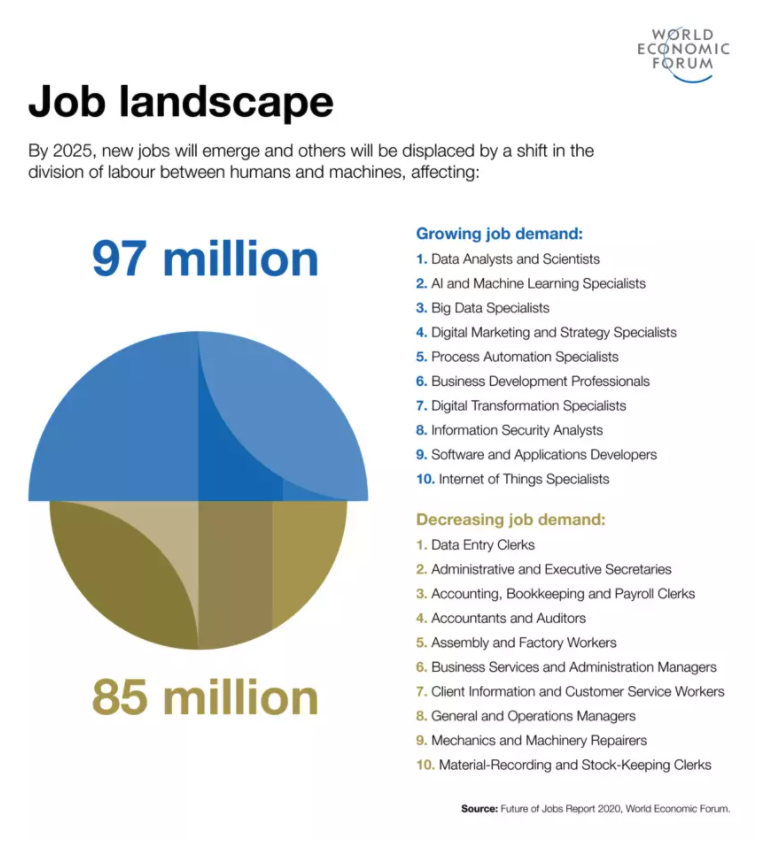AI and Job Growth
When most people hear about artificial intelligence (AI) in the workplace, their first thoughts turn to being replaced and the loss of jobs this would create. And the pandemic this past year has only accelerated the adoption of workforce automation. For example, there are new contactless payment methods and delivery options. Instead of worrying of future job losses due to automation, the reality is that AI delivering job growth is far more likely.
This isn’t the first time we faced these concerns. Most recently it was when the internet became an everyday technology. There were fears then as well. In retrospect, the internet was responsible for the creation of millions of new jobs and is roughly 10% of the United States gross domestic product (GDP).
AI and the related technology of machine learning (ML) are estimated to have a larger impact on the global, not just US, economy. According to the PwC Annual Global CEO Survey, nearly two-thirds of CEOs believe it will create greater growth than the internet.
AI and ML are part of the fourth industrial revolution. And much like the internet before it, the jobs created by Industry 4.0 are going to be different. That means companies are going to need to continue to invest in efforts to upskill and reskill their employees.
According to the World Economic Forum, 12 million new jobs will be created in the next five years related to technology adoption. However, as you can see by their graphic below, the roles created are going to be very different from the current roles.

A recent survey from PwC estimates a nearly $16 trillion increase in worldwide GDP in the next decade. The growth in jobs, as we’ve seen in the past, is a result of automating repetitive tasks and creating (sometimes new) roles that focus on higher-value contributions to organizations, that in turn create more value.
Now that we better understand the type of job evolution automation brings about and the speed at which change is happening, it’s incumbent upon board of directors and executive leadership teams to develop actionable plans for reskilling and upskilling employees. To be sure, this is an investment in planning for future company revenue growth. Considering it an expense is a short term view that will cost far more in terms of investment and potential lost revenue if you are unable to pivot quickly as the business landscape changes.
The positive social impact of technology can’t be underestimated. According to the World Economic Forum, “companies should invest in developing their employees’ soft skills that AI cannot replicate. In this changing world, the value of creativity, leadership, and emotional intelligence will likely only increase, and leveraging these qualities to create strong governance and organizational cultures to manage AI is critical.” Below are a number of resources to help you as you consider how to address reskilling and upskilling.
- PwC New World New Skills
- Generation Unlimited
- World Economic Forum Reskilling Revolution
- Luxembourg’s Digital Skills Bridge Project
And of course, if you have any questions about hiring to build, lead, or support a reskilling and upskilling initiative, let us know. Our team of retained search consultants are here to help you recruit the talent you need as we move forward towards implementing new AI and ML initiatives.